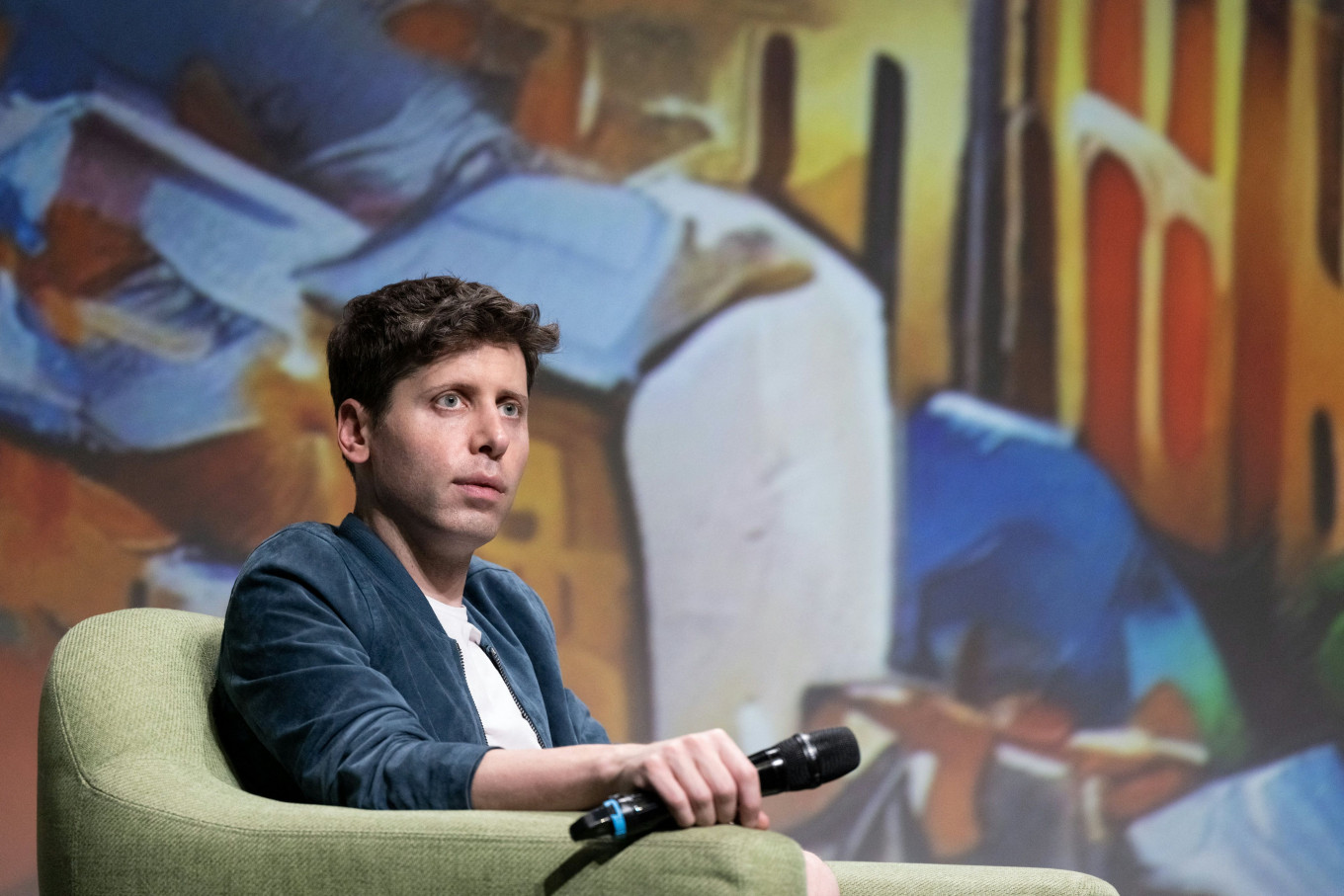Popular Reads
Top Results
Can't find what you're looking for?
View all search resultsPopular Reads
Top Results
Can't find what you're looking for?
View all search resultsAI rules are not for OpenAI to decide, Altman says
OpenAI CEO Sam Altman was in Jakarta as part of a whirlwind tour around the globe to calm fears about the march of artificial intelligence (AI).
Change text size
Gift Premium Articles
to Anyone
O
penAI’s CEO Sam Altman on Wednesday sought to reassure governments that the creator of ChatGPT would endeavor “to make the system as democratic as possible,” amid widespread fears that the artificial intelligence (AI) software was disrupting entire industries and taking away jobs from ordinary humans.
The immensely popular ChatGPT software has recently made it into the workflow of many industries around the world, prompting weary discussions and even an open letter expressing anxiety that AI was advancing too fast.
Responding to such concerns, Altman said that OpenAI has been taking steps to ensure that the decision to write the rules of the AI game would not be left to the firm alone.
“Our plan [is] to try to hand this decision-making over democratically to the world and respect different legal frameworks,” he told a packed public forum in Jakarta.
“Who decides what values we’re gonna align these systems to? Who decides what the outer bounds are and what an AI will do and not do? [...] Who decides what the default is going to be? Within these wide bounds, different countries can have different rules.”
Embracing AI
The OpenAI CEO was in Jakarta as part of a whirlwind tour around the globe to talk to people interested in AI in hopes of ushering the world into the AI age.
Altman also took the time to “meet with policymakers,” according to his tweet on March 30, reportedly to invite them to take part in the process of determining the benchmark for deploying tools developed by the tech firm.
During the discussion, Education, Culture, Research and Technology Minister Nadiem Makarim posed a question on the massively disruptive potential that AI has on education.
Nadiem expressed his belief that education systems should “wholeheartedly” embrace AI and let it push them to evolve, while also touching on a common fear that educators have had since the inception of ChatGPT.
“A lot of teachers around the world are freaking out, and they’re worried that the whole concept of normal quantitative and qualitative assessment, even essay writing, will be challenging as a proxy of progress and performance of their students,” the minister said.
But Altman pointed to the fact that such concerns have historically and repeatedly been mitigated by having humans adapt to new ways of thinking.
“You embrace the technology and you say this is a new tool for humans. With better tools, human ability, human creativity [and] human potential goes up,” he explained.
In the case of education, Altman suggested that the use of AI would result in increased student potential and learning rates, which begets higher expectations for innovation.
“Expectations go up too and you automate part of what people can do and you let them use their cognitive capacity and creative ability for something new and more powerful, impactful and valuable,” he said.
OpenAI’s stance to allow for the sandboxing of AI technologies stand in stark contrast to efforts to regulate it.
The European Parliament, for instance, is currently debating legislation that would shape the way companies can develop such AI models.
Meanwhile, Indonesia and the Southeast Asian region stand out as being more open to embracing AI technology.
President Joko “Jokowi” Widodo’s administration has underscored the importance of learning and adapting to AI technology to aid in job creation and to strengthen the economy.
At Wednesday’s event, Altman was symbolically handed a copy of Indonesia’s AI development roadmap for 2045.
-- Vincent Fabian Thomas and Aditya Hadi contributed to the report.










